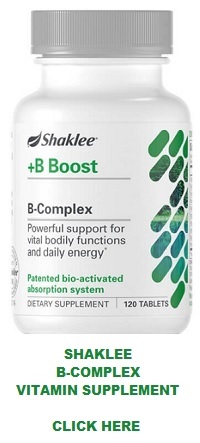Supplements
Best Multivitamin
Shaklee Vitamins Review
Antioxidants
Daily Multivitamin
Fat And Water Soluble Vitamins
Good Daily Multivitamin
Senior Vitamin Needs
Vitamins and the Body
Minerals
Vitamina y Nuestro Cuerpo
Sitemap
 
|
Vitamin B12 (Cyanocobalamin)

 Vitamin B12 is a very important member of the very important family of B-vitamins. Although we often hear talk about the B Complex, B12 itself is a complex, water-soluble vitamin that also contains cobalt, a
metallic ion.
Vitamin B12 is a very important member of the very important family of B-vitamins. Although we often hear talk about the B Complex, B12 itself is a complex, water-soluble vitamin that also contains cobalt, a
metallic ion.
Vitamin B12 is absorbed into the body through the gastrointestinal system, and interestingly, the liver is able to store adequate supplies
of it, making deficiencies rare. However, those who have stomach problems or have had operations, such as bariatric surgery, that make absorption troublesome, or seniors, can end up with
a deficiency even though they consume the right foods or get adequate supplies via supplementation.
If you have had bariatric (weight loss) surgery, are a senior, or feel that there may be other issues preventing you from benefiting from taking a B12 Supplement tablet or pill, you can get it in sublingual form. A sublingual B12 supplement is placed under the tongue, and the vitamin is absorbed into the bloodstream
Well known as the "energy vitamin", adequate levels of Vitamin B12 or Cyanocobalamin have been shown to increase alertness, reduce tiredness and leave people feeling overall invigorated.
One important function which Vitamin B12 offers is its ability to
work in conjunction with Folic Acid in the production of DNA. Because of the way it is able to recycle certain enzymes, it plays a
significant role in maintaining the proper functioning of cells, blood and nerves. An imbalance of either Vitamin B9 or B12 can negatively
impact the way red blood cells divide and lead to a condition known as pernicious anemia.
As if B12 was not doing enough for us already, this vital nutrient also works to reduce levels of homocysteine, the amino acids that can damage artery walls and increase a person's risk of
developing heart disease. Vitamin B12 is a substance which is also responsible for ensuring that nerve cells function properly. It's also possible that Vitamin B12
can treat symptoms associated with a loss of calcium including
osteoporosis and damage to the teeth. This vitamin may even be able to
relieve some symptoms of depression.
Sources of Vitamin B12
Animal liver has historically been the best source of Vitamin B12 (Cyanocobalamin). It is
particularly important for us who are trying to get this important nutrient from "natural" sources, is that Vitamin B12 is not found in plant tissue. Those who consume a vegan or vegetarian-style diet would be
well advised to take a supplement to insure getting enough of this important vitamin. Other good sources of Vitamin B12 include liver, fish, eggs, cheese and meat.
Read those labels. Many food products, such as cereals, plant milk, soy products and brewer's yeast, have been fortified with B12, and, as such, are good sources, especially for those who
consume a vegetarian diet.
For adults, about 2.4 micrograms is the recommended daily allowance of this vitamin, slightly higher for lactating and pregnant women, according to the NIH. However, since this vitamin has no toxic side effects, consuming more
can help ensure an adequate production of red blood cells and can help prevent birth defects.
There are many perfectly acceptable Vitamin B12 supplements available, my personal favorite being the Vitamin B Complex from Shaklee.
Symptoms of a Vitamin B12 Deficiency
Symptoms of a Vitamin B12 deficiency develop gradually, usually not becoming apparent for at least a year and oftentimes longer. Anemia is
the first sign that the body is not getting an adequate supply of Vitamin B12.
Other symptoms of this type of deficiency include a sore tongue, trouble with memory or concentration that can result in confusion, an
overall feeling of tiredness, irritability, diminished appetite, tingling, numbness, diarrhea, problems associated with poor circulation
and development of a yellowish tint on the skin.
Brain damage and deterioration of the nervous system are also possible symptoms that can result from this type of deficiency. In addition, a
Vitamin B12 deficiency can cause homocysteine levels to increase which
puts an individual at higher risk for development of heart and/or coronary disease.
Vitamin B12 Deficiency and Dementia in Seniors
Recent studies indicate that a Vitamin B12 deficiency can be quite common in seniors, as their nutritional habits tend to slip a little anyway, and the body of a senior is less efficient at extracting and using the nutrient. This deficiency, with which even I, at age 64, was diagnosed, has been linked to early onset of dementia, and perhaps even to Alzheimer's Disease.
Relevant Article: B12 Deficiency in Seniors
Vitamina B12
|




